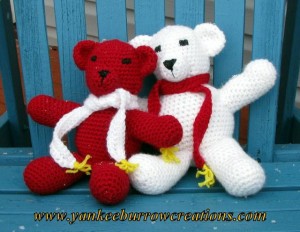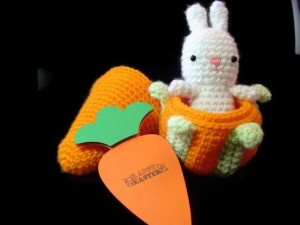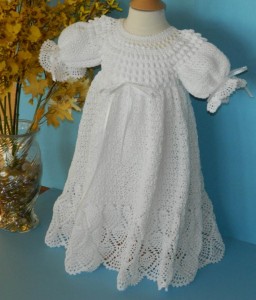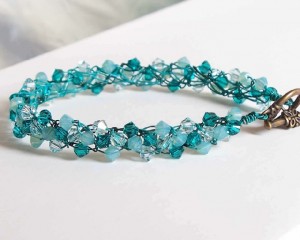Departments
Search
Follow Us
Tags
accessories
art
artisan
artist
artistic jewelry
beaded
beading
beads
bracelet
buy handmade
chainmaille
craft
crafts
Creative Handmade Artisans
crochet
discover handmade
earrings
feature
featured artist
gemstones
glass
HAFshop
handcrafted
Handmade
handmadeartists
Handmade Artists
Handmade Harbor
handmade jewelry
handmade pendant
Handmade Products
jewellery
jewelry
knitting
necklace
polymer clay
sell handmade
selling handmade online
selling tips
sell online
sewing
small business
soap
sterling silver jewelry
wire
wire wrapped
Latest Highlights
IBH
Where does Crochet come from, who invented it….
using a crochet hook. Even some Rag Rugs can be crocheted. Why am I writing
about Crocheting? I am a fan of it myself and currently teach a bunch of teenagers
at my local church how to crochet.
The word is derived from the French word “crochet”, meaning hook. Hooks can be
made of materials such as metals, woods or plastic and are commercially
manufactured as well as produced by artisans. Crocheting, like knitting, consists
of pulling loops through other loops, but additionally incorporates wrapping the
working material around the hook one or more times. Crochet differs from knitting
in that only one stitch is active at one time (exceptions being Tunisian Crochet
(I love that one) and broomstick lace, stitches made with the same diameter of yarn
are comparably taller, and a single crochet hook is used instead of two knitting
needles. Additionally, crochet has its own system of symbols to represent stitch types.
South America, or China, but there is no decisive evidence of the craft being
performed before its popularity in Europe during the 19th century.
The earliest written reference to crochet refers to slip stitch crochet/ shepherds knitting
from The Memoirs of a Highland Lady by Elizabeth Grant (1797–1830) in the 19th
century. Some claim that the first published crochet patterns appeared in the Dutch
magazine “ Penelope in 1824. Crochet patterns have recently been found in the S
wedish magazine “Konst och nyhetsmagasin för medborgare av alla klasser” from
1819, discarding this earlier notion.There might exist even earlier examples in
publications not previously scrutinized. Other indicators that crochet was new in
the 19th century include the 1847 publication A Winters Gift which provides detailed
instructions for performing crochet stitches, although it presumes that readers
understand the basics of other needlecrafts. Early references to the craft in Godey’s
Lady’s Book in 1846 and 1847 refer to crocheted before the spelling standardized in
1848.
Crocheted laces in the new Edwardian era, peaking between 1910 and 1920, became
even more elaborate in texture and complicated stitching.
The strong Victorian colors disappeared, though, and new publications called for
white or pale threads, except for fancy purses, which were often crocheted of
brightly colored silk and elaborately beaded. After World War I, far fewer crochet
patterns were published, and most of them were simplified versions of the early
20th century patterns. After World War II, from the late 40s until the early 60s, t
here was a resurgence in interest in home crafts, particularly in the United States,
with many new and imaginative crochet designs published for colorful doilies,
potholders, and other home items, along with updates of earlier publications.
These patterns called for thicker threads and yarns than in earlier patterns and
included wonderful variegated colors. The craft remained primarily a homemaker’s
art until the late 1960s and early 1970s, when the new generation picked up on crochet
and popularized granny squares, a motif worked in the round and incorporating bright
colors.
has seen a revival of interest in handcrafts and DIY, a s well as great strides in
improvement of the quality and varieties of yarn. There are many more new pattern
books with modern patterns being printed, and most yarn stores now offer crochet
lessons in addition to the traditional knitting lessons. There are many books you
can purchase from local book stores to teach yourself how to crochet whether it be
as a beginner or more intermediate, there are also many books for children and
teenagers who are hoping to take up the hobby.
Crochet has experienced a revival on the catwalk. Christopher Kane’s Fall 2011
Ready-to-Wear collection has made intensive use of the Granny Square, one of the
most basic of crochet motifs. Additionally, websites such as
Handmadeartists.com have made it easier for individual hobbyists to sell and
distribute their patterns or projects across the internet. Today, even some jewelry is
partially crocheted.
Click on any image in this post to see more about the artists’ and their product!
Tags: crochet, crochet variations, hand crafted, Handmade, Handmade Artists, handmade crochet, history of crochet
Posted in Handmade
2 Responses to “Where does Crochet come from, who invented it….”
Leave a Reply
You must be logged in to post a comment.






Great article Monika! Thanks for the history lesson in crochet!
Cool article Monika! Interesting facts about crochet, which I didn’t know. ;o) My Great Grandmother crocheted, back in the early 1900s using a steal hook and thread. My mother has a bedspread she crocheted… it is amazing! Thanks Monkia (including my picture) and for great time reading about my love for this ageless art.